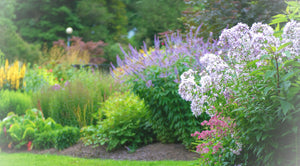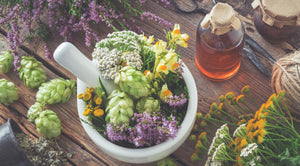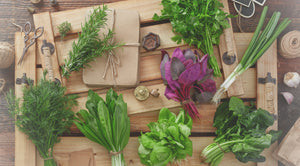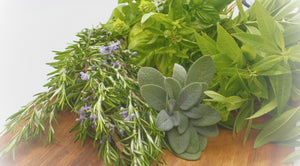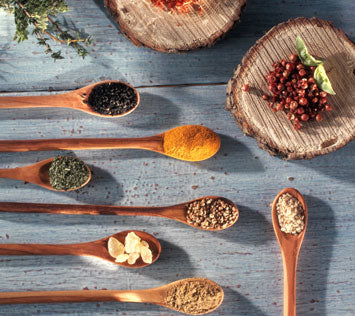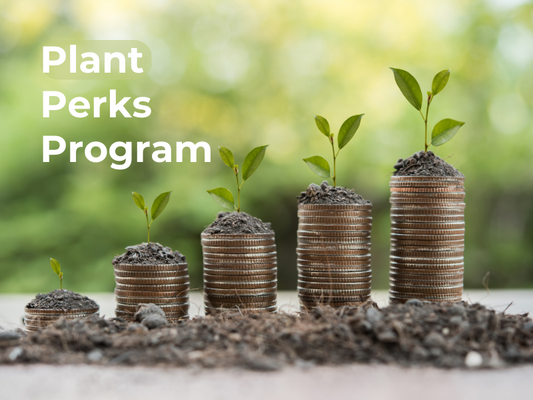Herbs are purposeful plants with heady aromas and sublet hues and do not depend upon flowers for their beauty. Herbs provide a quiet and exquisite poetry, even in the most contained situations.
-The Potted Herb by Abbie Zabar
It's all true! Herbs are essentially purposeful plants. A perfect description of the plants that we have devoted our entire careers to growing and selling. But, in addition, they have become a way of life. A passion. In Zone 7, we are unable to enjoy the herb garden year round. As I gaze out of my window upon our test beds, I can still see my hardy sage, persistent parsley and still fragrant rosemary.
Winter is just beginning but many varieties of basil are long gone. However, a few steps away is our "eating porch" (our indoor sun porch) and I am met with the earthy aroma of white sage. I can rub the leaves of my lush scented geranium, and inhale joy. We have discovered the ease and the rewards of container gardening- potted herbs thriving indoors.
Although herbs can be grown in almost anything, I am going to speak to what works for us. Our personal and professional favorites. Consider all the other choices on your own. Here is our recommendation: clay pots. glazed, moss covered, exposed red clay. Our personal favorite tends towards Terra Cotta. Functionally perfect with its porosity and exquisite in its understated elegance. So many shapes and sizes and colors. Herbs seem to settle in quickly and look natural.
Growing in a container does present a few, minor challenges that must be understood. Remember, without the protection of the ground, the plants are much more exposed. Therefore, remember that wind and sun and even indoor air can dry out these potted beauties quickly, so make sure you are vigilant. Potting soil has to be the best, that goes without saying for any plant.
Clay containers, our recommendation, are porous which means that there is increased water loss as well as nutrient loss. Evaporation. Water is essential to life and remember that balance is vital: too little water will stress the plant and slow its growth rate. Too much water will kill quickly. Watering is as much an art as a science. Experience is important and no amount of advice will help. But, remember to ask yourself:
If I water today, will my herbs wilt by tomorrow? You will begin answering this question more successfully as you grow more herbs. However, there are factors to consider: size of the plant and container, the season of the year, your temperatures at night and during the day as well as the amount of sun the previous day. Feeding your plants is also important, and there are so many fertilizers on the market it will make your head spin. Again, READ. But, although there are dozens of different fertilizer choices with different formulations, we recommend fish emulsion. A little stinky but perfect for herbs. A little goes a long way.
You don't need a greenhouse to grow healthy herbs indoors. You need healthy plants to start with; you need proper soil and a good container. Light is your most critical factor and again, we recommend at least 6 to 8 hours of direct light per day. Period.
No matter where you decide to grow your potted herbs , keep in mind that this will require a bit more know how than simply planting them in an established bed outdoors in the spring. Indoors, you take on greater responsibility for the growing environment. But, fear not, greater control means that you have the ability to create an environment whereby you could easily outperform your outdoor herbs!!
